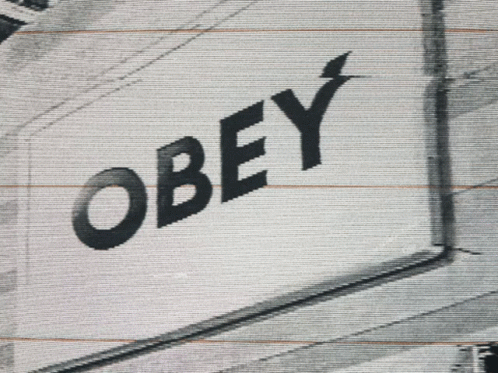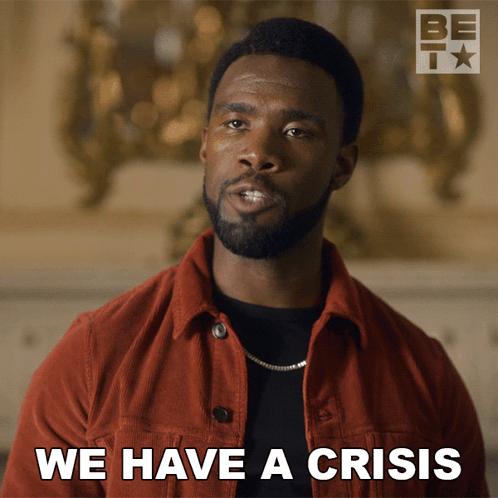Have you ever followed God's direction only to watch everything immediately fall apart? Moses and Aaron know that feeling. In Exodus 5, the newly commissioned messengers march into Pharaoh's court with divine confidence: "This is what the LORD, the God of Israel, says: 'Let my people go.'" The result? Not freedom, but intensified oppression. "You are no longer to supply the people with straw for making bricks; let them go and gather their own straw. But require them to make the same number of bricks as before."
Pharaoh's response wasn't just rejection—it was retaliation. This isn't merely ancient workplace cruelty—it's a powerful lesson about how obedience to God sometimes leads through deeper valleys before reaching higher mountains, and how our faithfulness can trigger a crisis that's actually the necessary prelude to breakthrough.
From Bad to Worse: The Crisis of Obedience
Exodus 5 moves with the sobering reality of what sometimes happens when we step out in faith. Moses and Aaron deliver God's message, and everything immediately deteriorates. The narrative progression is painful:
Divine command obeyed → Pharaoh refuses → Punishment decreed → Burden increased → People broken → Leaders questioned → Faith tested
This isn't just storytelling – it's a profound picture of the spiritual principle that opposition often intensifies before deliverance arrives. The path to promised freedom frequently leads through heightened bondage first.
The Confrontation That Backfired
When Moses delivers God's demand, Pharaoh's response is as dismissive as it is revealing: "Who is the LORD, that I should obey him and let Israel go? I do not know the LORD and I will not let Israel go" (Exodus 5:2).
This is extraordinary. Pharaoh doesn't just reject the message—he rejects the messenger's God entirely. "I do not know the LORD" is both a statement of ignorance and defiance. In the ancient world, to acknowledge another deity's name was to grant some legitimacy to their power. By refusing to even recognize Yahweh, Pharaoh is making a supremely arrogant declaration of his own divinity against Israel's God.
Notice how Moses' first diplomatic approach is remarkably restrained: "The God of the Hebrews has met with us. Let us take a three-day journey into the desert to offer sacrifices to the LORD our God" (5:3). They don't initially demand permanent freedom—just a temporary religious festival. Yet even this modest request is met with scorn and cruelty.
THE RUTHLESS RESPONSE
Pharaoh's retaliation wasn't merely petty—it was strategically cruel: "Make the work harder for the people so that they keep working and pay no attention to lies" (Exodus 5:9).
What Pharaoh says: "You are lazy! That's why you keep saying, 'Let us go and sacrifice to the LORD'"
What he actually means: "Your desire for worship is a threat to my economic system and control"
The devastating policy change:
Previous system: Straw provided, quota manageable
New system: Gather your own straw, same brick quota
The impossible demand: Maintain production with reduced resources
The divisive strategy: Turn Israelites against their own leaders
This policy reveals several dark truths about tyranny:
It responds to freedom initiatives with intensified control
It labels legitimate spiritual aspirations as "laziness"
It creates impossible situations to break people's spirits
It attempts to divide the oppressed against their advocates
Pharaoh demonstrates what happens when absolute power corrupts absolutely—and provides the perfect foil for demonstrating God's superior power.
The Leadership Crisis
Exodus 5 reaches its emotional climax with Moses himself questioning God's plan: "LORD, why have you brought trouble on this people? Is this why you sent me? Ever since I went to Pharaoh to speak in your name, he has brought trouble on this people, and you have not rescued your people at all" (5:22-23).
This complaint reveals something deeply human about Moses—he expected immediate results. He envisioned delivering God's message and watching Pharaoh crumble before divine authority. Instead, he faces the crushing burden of seeing his people suffer more because of his obedience.
What looks like Moses' failure is actually the necessary first stage in God's complex strategy:
Pharaoh's heart is being revealed in its full hardness
Israel is experiencing the depths of oppression before deliverance
Moses is learning that God's timeframe rarely matches human expectations
The stage is being set for a more dramatic display of divine power
This apparent setback is merely setting up a greater comeback.
WHEN THE FOREMEN FACED PHARAOH
Have you ever considered the INTENSE PRESSURE the Israelite foremen faced in Exodus 5:15-21?
These weren't just random Israelites. These were men CHOSEN to supervise their brothers, with the impossible job of enforcing Pharaoh's demands while sharing in their people's suffering.
When the new cruel policy came down, they were caught in the ultimate middle-management nightmare:
Pharaoh's officials beating them for quotas they couldn't meet
Their own people resenting them as extensions of Egyptian authority
No power to change the system, yet blamed for its failures
Talk about being between the ROCK and the HARD PLACE!
And look what they did—they risked EVERYTHING by bringing their complaint directly to Pharaoh himself!
"Why have you treated your servants this way? Your servants are given no straw, yet we are told, 'Make bricks!' Your servants are being beaten, but the fault is with your own people" (5:15-16).
This wasn't just a complaint—it was COURAGEOUS ADVOCACY at great personal risk!
When their appeal to Pharaoh failed, they confronted Moses and Aaron, feeling betrayed by the very deliverance they had been promised: "You have made us obnoxious to Pharaoh and his officials and have put a sword in their hand to kill us!" (5:21)
These foremen represent everyone who's ever been caught between oppressive systems and the people suffering under them—trying to buffer the blows, absorbing criticism from both sides, and feeling abandoned by the very solutions that promised relief.
Remember this painful moment when you feel caught between impossible demands and disappointed hopes! Even when your best efforts to advocate seem to make things worse, God is still working His greater plan of deliverance.
WALK THRU TRIVIA CHALLENGE
Question: In Exodus 5, what specific reason did Moses and Aaron initially give Pharaoh for why the Israelites needed to leave Egypt?
A) To claim the Promised Land
B) To escape Egyptian oppression permanently
C) To offer sacrifices to the Lord in the wilderness
D) To fulfill the prophecy given to Abraham
Check your answer below!
THE BACKLASH PRINCIPLE
The most remarkable aspect of Exodus 5 isn't just the increased oppression—it's how this pattern repeats throughout redemptive history:
"When you obey God, expect things to get worse before they get better."
This reveals a profound spiritual principle that plays out repeatedly: Darkness often intensifies just before the dawn breaks. The equation is divine timing:
Initial obedience → Immediate opposition
Spiritual advance → Satanic counterattack
Kingdom movement → Status quo backlash
Throughout Scripture and church history, we see this pattern continue. Joseph's dreams led to slavery before promotion. David's anointing led to years as a fugitive before kingship. Jesus' ministry triggered crucifixion before resurrection. The early church faced persecution before expansion.
This principle reminds us: divine deliverance often passes through the valley of intensified oppression before reaching the mountain of liberation.
Your Turn to Walk Through
As you read Exodus 5 again (and I encourage you to do so), consider:
Where in your life have you experienced backlash after stepping out in faith?
How have you responded when obedience seemed to make your situation worse?
What might God be preparing in your current struggles that will make sense in retrospect?
Remember, this isn't just ancient history—it's a window into how God still works through the painful pattern of crisis before breakthrough, testing our faith in the gap between His promise and its fulfillment.
The Path to Christ
Exodus 5 points to Jesus in powerful ways. When Moses and Aaron's words brought greater suffering to God's people, they foreshadowed how Jesus—the Word made flesh—would also be rejected by the powers of His day. Yet while Pharaoh's hardening led to Israel's temporary suffering, humanity's rejection of Christ led to His suffering on our behalf.
Jesus experienced the ultimate "obedience that made things worse" when His perfect submission to the Father's will led Him to the cross. The darkest moment in history—when it seemed evil had triumphed—was actually the pivotal moment of our redemption. What appeared to be defeat was the necessary prelude to resurrection victory.
Are you in an Exodus 5 moment right now? Have you stepped out in faith only to watch everything deteriorate? The message of the gospel is that God's greatest deliverances often come through what appear to be our greatest defeats. Just as Israel's increased suffering was the prelude to their miraculous exodus, your current crisis may be the necessary darkness before your dawn.
Jesus invites you to trust Him in the gap between promise and fulfillment, between obedience and outcome. When you surrender your life to Christ, you don't get a guarantee of immediate ease—you get the assurance of His presence in the brick-making fields of increased hardship. But you also receive the promise that your story doesn't end in Pharaoh's empire. It ends in freedom, redemption, and the Promised Land of God's eternal kingdom.
Will you trust Him today, even when—especially when—obedience seems to make everything worse?
Trivia Answer
Answer: C) To offer sacrifices to the Lord in the wilderness
Exodus 5:1-3 shows that their initial request was actually quite limited: "Afterward Moses and Aaron went to Pharaoh and said, 'This is what the LORD, the God of Israel, says: "Let my people go, so that they may hold a festival to me in the wilderness."'" They further explained, "The God of the Hebrews has met with us. Let us take a three-day journey into the wilderness to offer sacrifices to the LORD our God."








